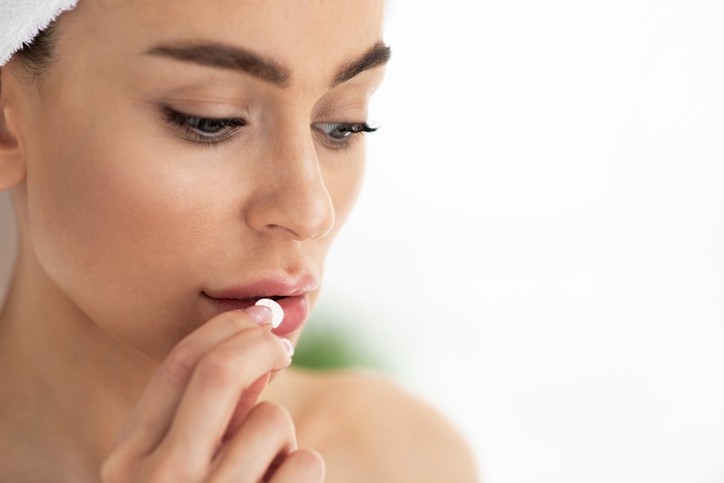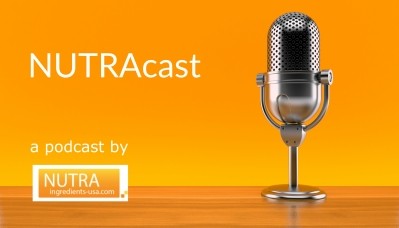Mintel report: Marketers should focus on millennials

Vitamins, minerals, and dietary supplements (VMS) use among Americans is on the rise, and millennials can take credit for a large chunk of that. According to a new report from Mintel, millennials report their overall physical health (66%) and immune system (62%) are the top two reasons for their VMS use. However, mental health is also top of mind, with 43% of millennials reporting that their VMS usage is to support their mental well-being, compared to 34% of consumers overall.
As greater attention is placed on one's mental health, Mintel noted that VMS brands should tap into this trend by zeroing in on brain-boosting and mood-regulating ingredients such as magnesium, vitamin D, curcumin and L-theanine.
Dorothy Kotscha, Health and Wellness Analyst, Mintel Reports US, said that despite unprecedented levels of economic turmoil in recent years, the VMS category continues to witness strong sales growth.
“Consumer use of VMS products is on the rise due to a heightened awareness of health and wellness and as a result of the COVID-19 pandemic. In fact, one third of consumers (34%) report that their usage of VMS products has increased since the COVID-19 pandemic," she said. 'Consumers are turning to VMS products to support top-of-mind health concerns such as immune health, gut health and sleep health.”
VMS sales heightened during the pandemic, with a 22% jump between 2019-2020, reaching over $31.5 billion in 2020. In 2022, growth leveled out when sales grew an estimated 4.1% to reach $35.64 billion. Sales are set to grow a further 5% in 2023 when the market is expected to hit an estimated $37.44 billion.
Kotscha said that while the pandemic negatively impacted multiple areas of consumers' lives, the shift it created in how consumers view and approach their health has benefitted health and wellness brands, particularly within the vitamin, mineral, and dietary supplements (VMS) space.
"Our research shows that consumers are taking lessons learned from the pandemic to create health routines around VMS products; however, there are signs of fatigue within the market. Usage of multivitamins, for example, has remained flat over the past year, indicating that interest is being directed elsewhere. Brands will need to focus on innovation and emerging health concerns in order to embrace changing consumer sentiment. Ingredient transparency will be increasingly important as consumers seek to understand the role ingredients play in their VMS products,” noted Kotscha.
Back to the basics
According to Mintel, the majority of consumers take some sort of vitamin or supplement, with 78% reporting that they take a vitamin and 64% a supplement. While use of vitamins remained flat over the past two years (77% in 2021), usage of supplements increased by 13 percentage points, up from 51% in 2021. Specifically, single-letter vitamins and mineral supplements have seen a gradual uptick in usage over the last five years: single-letter vitamin use increased from 47% in 2018 to 52% in 2022, while mineral supplement use increased from 33% to 42%. Mintel research found that consumers want to optimize their health by focusing on vitamins and minerals they may be lacking for a more personalized approach, rather than a one-size-fits-all multivitamin.
Kotscha told NutraIngredients-USA that VMS users are also exploring ways that supplementation can be customized to target specific concerns.
“Consumers are turning to single-letter vitamins and specialty supplements to provide a personalized approach to their VMS routines. While usage of multivitamins has remained flat over the past year, single letter vitamins and specialty supplements have seen a gradual uptick. Many consumers are using VMS products as a way to fill in nutritional gaps rather than turning to a one-size-fits-all multivitamin,” she said.
"Single-letter vitamins may erode the widespread usage of multivitamins as consumers desire greater control over their VMS regimens. Major VMS players should take a close look at ways to offer customized products in a variety of formats and distribution channels in order to optimize the way that they meet their customers' unique needs," Kotscha concluded.
Why market to millennials?
While overall VMS usage is on the rise, millennials are relying on multivitamins, specialty supplement blends and herbal supplements more than the general population. On top of that, millennials are also more likely to try a new type of VMS product, and about one third of them are open to trying new VMS products that they have seen advertised on social media platforms, according to Mintel.
Transparency is key
As consumers seek to gain more control over their health and wellness journey, VMS users are looking for greater transparency when purchasing VMS products, and according to Kotscha, this goes beyond organic certifications and allergen statements.
“Navigating the numerous VMS products on the market can be a daunting task, yet 34% of consumers believe that ingredient transparency is an important factor when selecting VMS products. By understanding the ingredients in the VMS products that they’re taking, what the health benefits of specific ingredients are, and how they affect the body, consumers can be reassured that their VMS products are pure, safe, and contribute effectively to their overall health goals,” she said.






